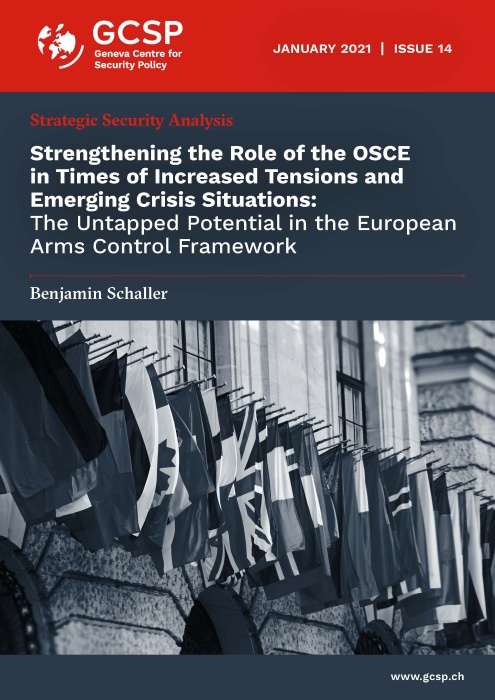Strengthening the Role of the OSCE in Times of Increased Tensions and Emerging Crisis Situations
05 February 2021
The Untapped Potential in the European Arms Control Framework
Key Points
- Amid one of the deepest crises of confidence since the end of the Cold War, arms control and military confidence-building frameworks are struggling to develop their full de-escalating and trust-building potential.
- In fact, numerous crisis situations in the past show that the findings of national verification procedures are particularly prone to the risk of serious political disputes and, in the worst case, can sometimes even become the source of additional tensions and distrust.
- While clearly not alone able to resolve the deep crisis in European security, lessons learned from other international organisations suggest that giving the Organization for Security and Co-operation in Europe (OSCE) the power and resources to conduct verification procedures on behalf of its participating States could make an important contribution towards a more resilient European arms control and military confidencebuilding framework in times of increased political tensions and distrust.


